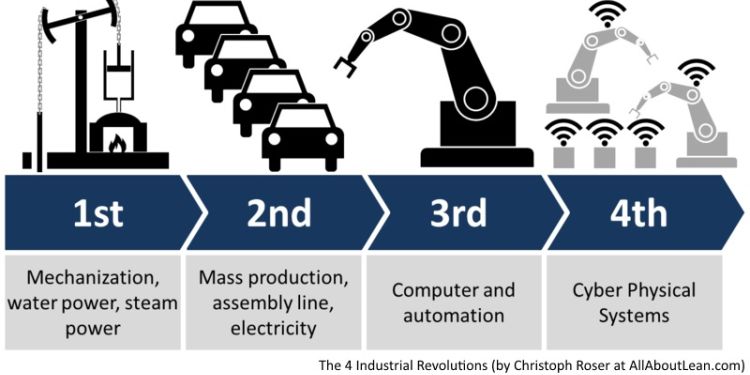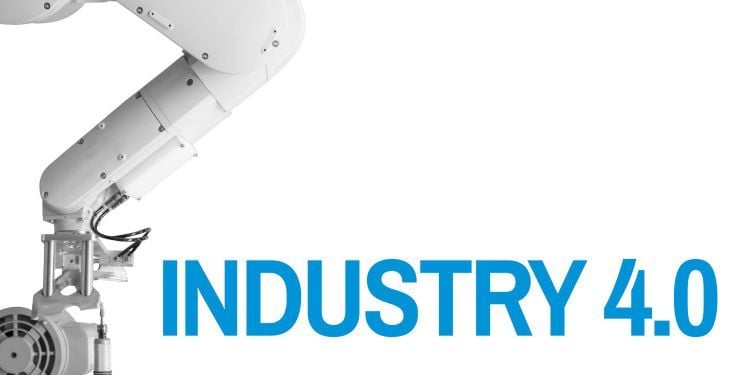
The Fourth Industrial Revolution brings artificial intelligence and machine learning in the foreground of a changing work environment. To get on the bandwagon, employers have to adapt to mobile internet and cloud technology, update their employees’ skills, and look for STEM (Science, Technology, Engineering, and Mathematics) educated candidates.Vesselina Stefanova Ratcheva, Data Analyst for the World Economic Forum, shares with Expat.com her vision of the future of jobs, and gives us some tips to excel in the developing employment market.
What is WEF's definition of the Fourth Industrial Revolution, and when is it about to start?
The First Industrial Revolution used steam power to mechanize production. The Second used electric power to create mass production. The Third used electronics and information technology to automate production. Now a Fourth Industrial Revolution is building on the Third. It is characterized by a fusion of technologies that are blurring the lines between the physical, digital, and biological spheres.

In its scale, scope, and complexity, the transformation will be unlike anything humankind has experienced before. The technological advances indicative of its arrival are slowly gathering momentum. We expect that the coming years will see an acceleration in the emergence of advanced technologies.
How businesses, governments, and individuals are expected to react to these developments? Has the competition started?
Governments and businesses are increasingly aware that there is a wider arena in which to both compete for emerging technologies and plan effective governance. This landscape presents a variety of challenges, especially when it comes to attempts to meet the talent demands which can effect wider economic growth. Great initiatives currently in place include Singapore's Skills for the Future programme, Finland's distinctively future-ready foundational education system, as well as Germany and Switzerland's exemplary approaches to technical and vocational education.
Where should students go to find the best studies in genetics, artificial intelligence, robotics, nanotechnology, 3D printing, and biotechnology?
No one institution or indeed country can be said to have the education capacity to develop the full sweep of the many emerging technologies. More importantly many emerging technologies are not likely to be taught in universities, but on the job, through wholly new certification models, or through micro-courses. Our work with education experts has highlighted that the education systems of the future will need to be agile to adapt to the emerging landscape and there will be similar demands placed on students themselves. Those embarking on new courses should not consider their education to be bounded in time and restricted to their degree programme. Increasingly students will need to think with a broad horizon, expect to learn throughout their lifetimes and be flexible in their outlook.
As with other developments before them, there will be the potential for many new companies to emerge to fill gaps in the industry landscape. Yet in an increasingly multi-focal world, these new enterprises could emerge in a variety of environments, only limited by the entrepreneurial nature of the populations at hand.
Facing a shortage of skilled people in several sectors, what is /will be the most popular profile among talent hunters, both in terms of soft skills and hard skills?
Technical skills vary significantly by industry and with the pace of change in technologies. Overall STEM skills will be in particular demand. When it comes to soft skills, Complex Problem Solving, Critical thinking, Creativity, People management and Coordinating with Others will be some of the key skills in 2020.
What jobs will be the most popular?
The future of work will particularly require professionals skilled at building the tools of tomorrow — professionals such as Mechanical and Electro-technology Engineers. Many high growth roles will be the ones leveraging STEM skills to the benefit of a variety of industries, including those dealing with new materials, extraction and processing such as Mining and Petroleum Plant Operators, Materials Engineers, as well as Industrial and Production Engineers.
Retaining their popularity are the recently booming Data Analysis, Software and Applications Developers and Analysts professionals. In addition, we expect to see an ongoing appreciation of those professionals that can understand and shape our increasingly complex economies: Economists, Management and Organisation Analysts, Supply Chain and Logistics Specialists.

Will the Fourth Industrial Revolution have an impact on the most traditional jobs — doctors, teachers, lawyers, blue collars? What about the impact on the mobility market?
Our projections suggest significant changes to traditional blue collar jobs and to the law profession in its current form, requiring wide-scale adaption. Medical jobs should see a more stable outlook, as should teaching roles, although the latter will also see some disruption in the type of work being done.
Most companies expect recruitment to become even harder, and the skills needed will undoubtedly be more high-level, suggesting that there will be a move towards seeking new talent pools. However, it remains to be seen whether companies will leverage the opportunity of new technologies, and make wider use of remote working, whether they will import talent, or will end up looking closer afield.
The rise of flexible work and new formats of working could enable more worker flexibility in terms of mobility, but wider geo-political factors will be potentially a constraining factor to more optimistic scenarios.



















